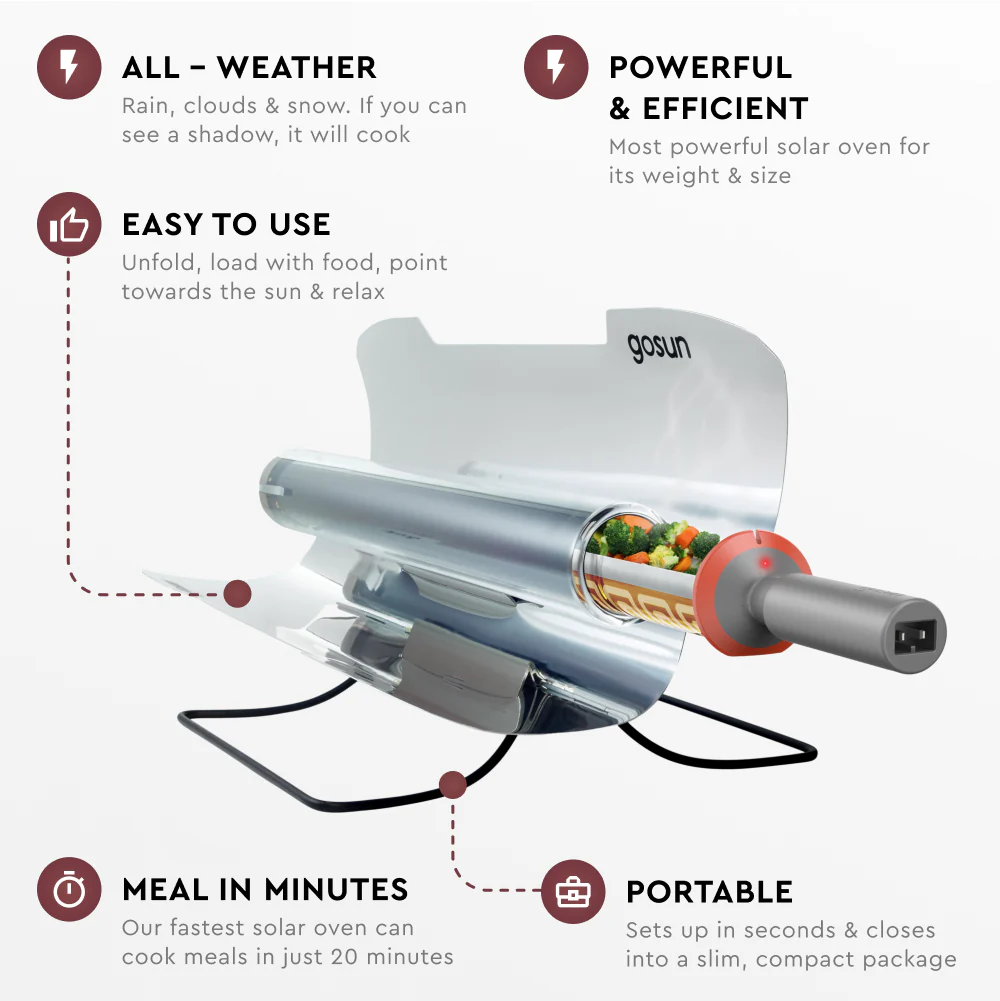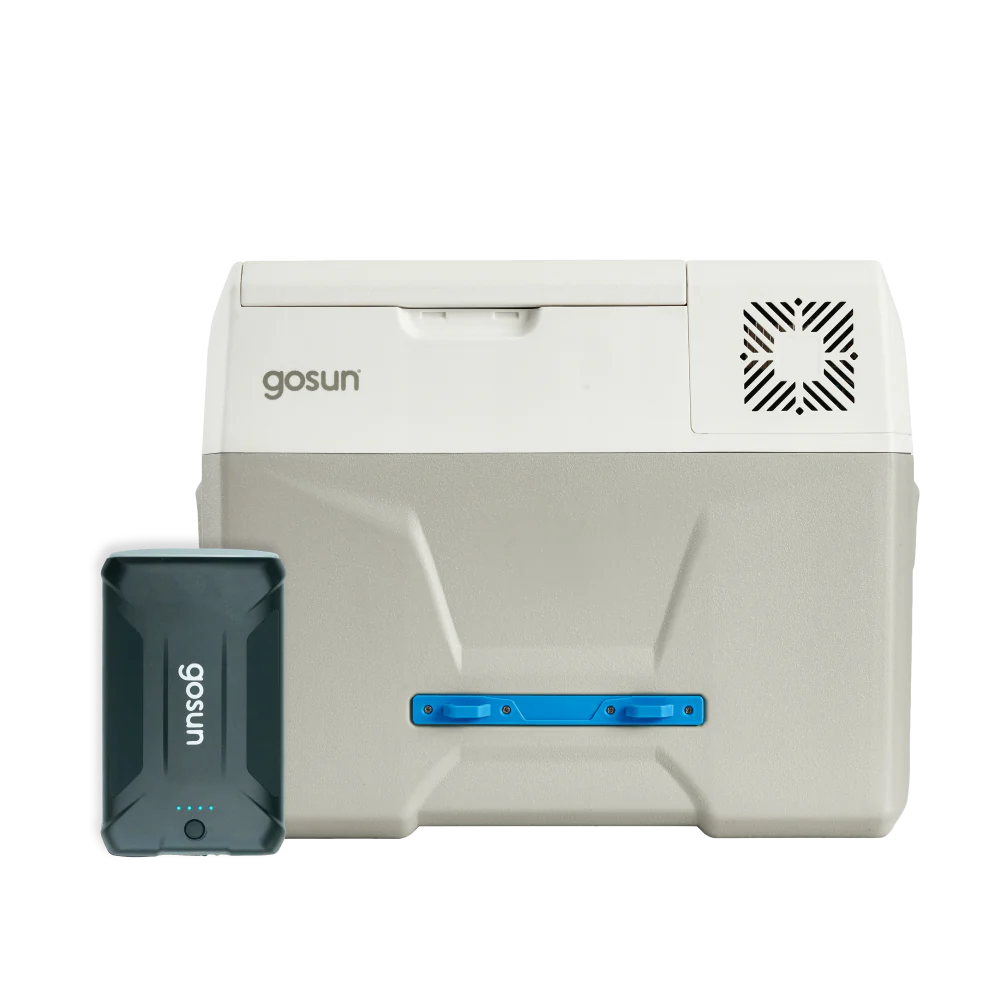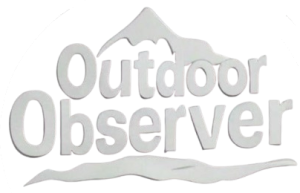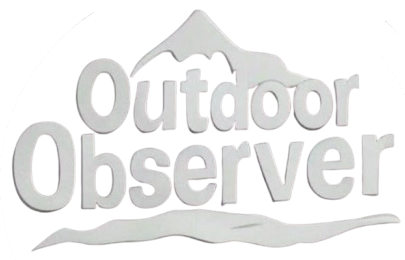This Content Is Only For Subscribers
In the past decade, the conversation around outdoor gear has shifted dramatically. It’s no longer just about durability and performance—sustainability has stepped into the spotlight. And few companies have leaned into that shift more fully than GoSun, a Cincinnati-based startup that has quietly become a leading voice in solar-powered outdoor appliances. Their innovations in off-grid technology are not just catching the eyes of campers and van-lifers, but also earning the respect of longtime outdoor professionals.
The Technology: Cooking and Cooling Without Fuel
At the heart of GoSun’s product line are two standout tools: the GoSun Fusion, a hybrid solar oven, and the GoSun Chill, a solar-powered cooler. Each is built to function independently of fossil fuels, tapping into sunlight through high-efficiency photovoltaic panels and thermal collectors.
The Fusion, GoSun’s flagship oven, uses a vacuum tube and reflectors to concentrate solar energy. This core design allows it to reach temperatures up to 550°F (288°C), even under partially cloudy skies. What sets it apart is its hybrid feature—an integrated 12V electric heater that works when sunlight isn’t available, powered by a portable battery bank or any standard 12V outlet. This combination ensures all-day and all-weather usability, which makes it ideal for extended expeditions, where meal planning often hinges on environmental conditions.
On the other side of the spectrum is the GoSun Chill, which functions more like a portable fridge/freezer. Unlike conventional coolers, it doesn’t require ice. Instead, it uses solar-powered compressor refrigeration, maintaining consistent temperatures even during heatwaves. When paired with GoSun’s folding solar panels and lithium-ion PowerBank+, the Chill becomes a fully off-grid food storage unit—capable of running up to 14 hours on a single charge.

Veteran Endorsement: “This Isn’t a Gimmick
To gauge how these technologies hold up in the field, I spoke with Lisa D., a backcountry outfitter and guide with 20+ years of experience leading multi-day excursions in remote areas of Arizona and Utah. She tested both the Fusion and the Chill during her off-grid training sessions in early 2024.
“I was ready to dismiss the oven as a novelty,” Lisa admitted. “But after the first few uses, it was clear this was something different. It baked a full tray of cornbread in under an hour—no gas, no fire restrictions, no cleanup.”
In fire-prone states where open flames are banned during the summer, a solar oven becomes more than a luxury—it’s a legal necessity. The Fusion’s no-flame cooking method aligns with wildfire prevention regulations enforced across several national parks and forests.
As for the Chill, Lisa was equally impressed. “Not having to deal with melting ice is a game-changer, especially in the desert. I kept dairy, meat, and meds cold for three days with full sun and didn’t need to make a single fuel run.”
She adds a cautionary note: “It’s still gear you have to plan around. Solar isn’t instant, and if you’re heading into dense forest or deep canyon country, sunlight can be limited. But in exposed environments? It’s gold.”

Off-Grid and On Point: Market Relevance
GoSun’s timing couldn’t be better. According to the Outdoor Industry Association’s 2023 Sustainability Report, 69% of outdoor consumers say they are more likely to purchase gear that supports environmental goals. Furthermore, 31% of surveyed campers indicated a willingness to invest in off-grid solar tech if it means fewer resupply stops and reduced waste.
The company’s appeal is particularly strong among van-lifers, overlanders, and dispersed campers, who often find themselves far from traditional power sources. The ability to charge, cook, and cool—all without gas or generators—is not just convenient, but also aligns with Leave No Trace principles and carbon-neutral camping.
Challenges and Considerations
GoSun’s innovations, while practical, do come with trade-offs. The gear is not light—Fusion weighs about 14 pounds, and the Chill with battery adds up to 30+ pounds when fully equipped. It’s not ideal for minimalist backpacking or ultralight hikers.
There’s also the matter of upfront cost. With full kits priced in the high hundreds, GoSun is clearly targeting committed users, not casual weekenders. That said, Lisa views the price point as justified for serious users: “If you’re out for weeks at a time, this saves you on fuel, ice, and food waste. Long-term, it pays for itself.”
Looking Ahead: A New Outdoor Ethos
What GoSun represents is more than just a product line—it’s a shift in how the outdoor community defines self-reliance. No longer does ruggedness mean carrying your fuel or building fires. Today’s vision of independence includes clean energy, efficient design, and low-impact practices.
As solar efficiency continues to improve, and as climate-conscious practices become standard in the industry, companies like GoSun are setting a model others may follow.
“This is the direction we have to go,” Lisa concludes. “The outdoors isn’t just a place to visit. It’s a place we protect. And if solar gear helps us tread lighter, that’s worth backing.”



